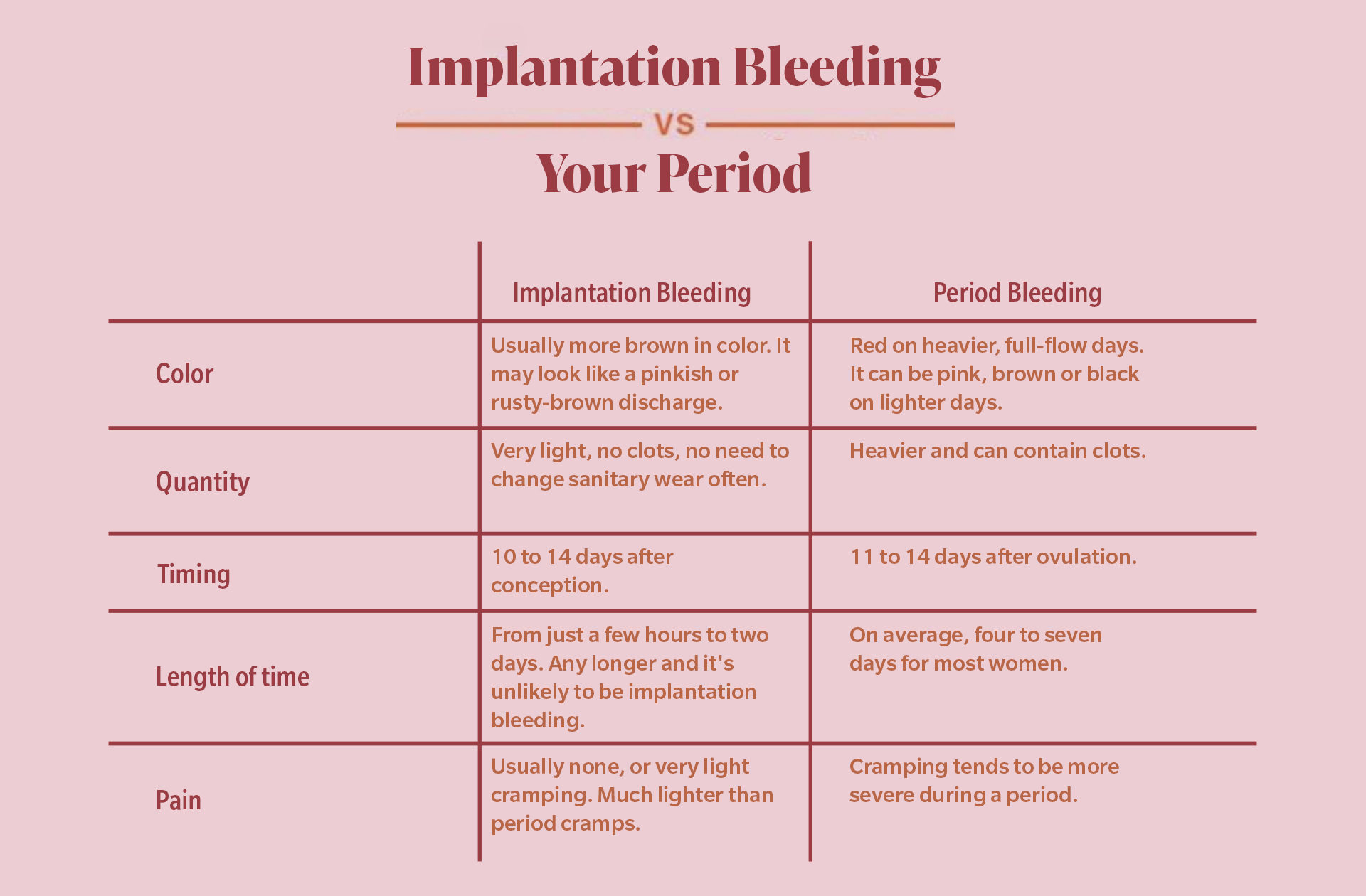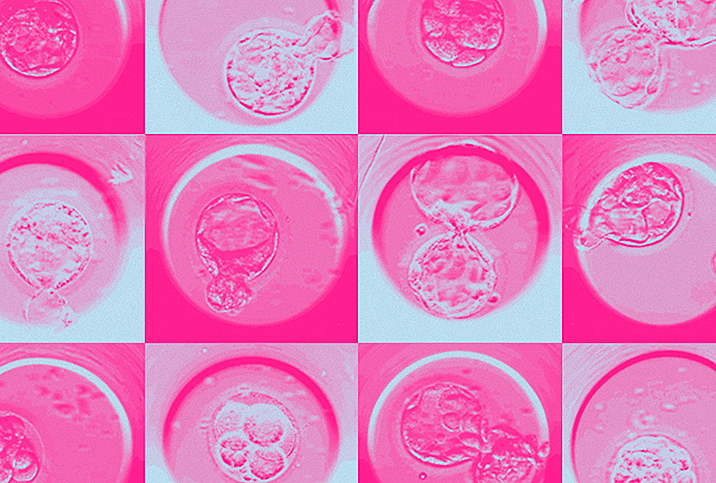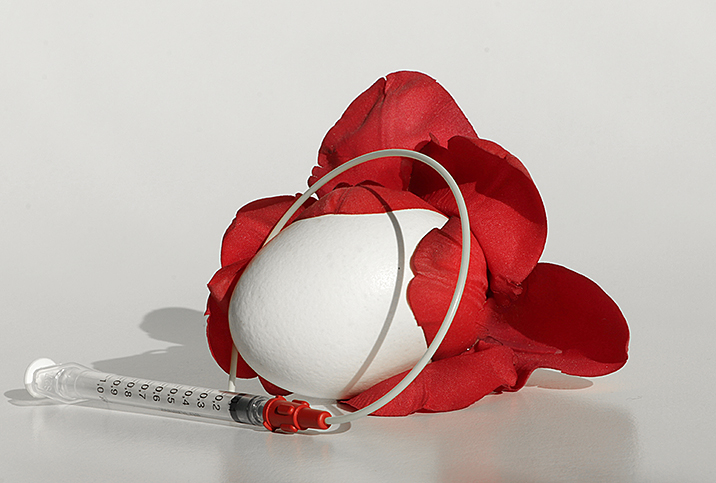What Is Implantation Bleeding?

First things first: If you have any bleeding at any stage of pregnancy, you should always speak to your healthcare provider right away. But if you've been checked out and all is well, you may have been told your early spotting is due to implantation bleeding, which is a small amount of bleeding (light spotting) that can happen when an egg attaches to the uterus lining.
"Around 1 [in] 4 pregnant women experience spotting or bleeding as one of their early signs of pregnancy," said Yen Hope Tran, D.O., an OB-GYN at MemorialCare Orange Coast Medical Center in Fountain Valley, California. "Implantation bleeding happens around 10 to 14 days after conception, around the same time you may be expecting your monthly period."
So if you don't know you are pregnant, implantation bleeding could be confused with your normal menstrual period.
Why implantation bleeding occurs
"We do not know exactly why implantation bleeding happens," said Kari von Goeben, M.D., a board-certified reproductive endocrinologist and infertility specialist at Kindbody in Chicago.
The implantation of an embryo into the uterine lining happens in three different stages, she explained:
- First, the embryo touches the lining of the uterus.
- Second, the embryo attaches to the lining of the uterus.
- Third, the embryo grows into the lining of the uterus.
One of the first changes in the uterine lining thought to occur during the implantation process is an increase in the permeability of the small blood vessels near the embryo, von Goeben said.
"Around the second week after ovulation, when the placenta is being formed, an invasion of maternal blood vessels begins, possibly leading to some implantation bleeding," she added.
Implantation is an essential process in early pregnancy, Tran explained, because the perfect implantation ensures the proper exchange of nutrients between mother and baby, thanks to the placenta, which is also beginning to form at this time.
"However, don't feel there is something wrong if you're pregnant and you didn't experience implantation bleeding," she stressed. "Many women don't experience or notice implantation bleeding."
How to tell if it's implantation bleeding or your menstrual cycle
"Timing is critical if you're trying to pinpoint the cause of your bleeding," Tran said. As mentioned previously, implantation bleeding happens around 10 to 14 days after conception, which would be the same time your period is due.
How do you tell if it's implantation bleeding or your menstrual cycle? Tran broke down the differences:

Even given the information in the chart above, telling the difference between implantation bleeding and your period can be difficult. The best way to tell is to take a home pregnancy test, according to von Goeben.
"If it is positive, then there is a chance it is implantation bleeding," she said. "However, even if the home urine pregnancy test is negative, it may just be too early to detect pregnancy in the urine, and you could try again in another couple of days."
What are other causes of bleeding in early pregnancy?
Bleeding in early pregnancy is very common. It does not necessarily mean the pregnancy is abnormal.
"There are many different causes of bleeding in early pregnancy, and at times, we never find a cause," von Goeben said.
Take a look at some of the other causes of bleeding in pregnancy:
- Taking supplemental vaginal progesterone, which can irritate the lining of the vagina and lead to bleeding
- Subchorionic hematoma, a blood clot behind where the placenta would grow that can lead to bleeding even in a normal pregnancy
- Miscarriage
- Ectopic pregnancy, which is a pregnancy that is not in the uterus
- Molar pregnancy, in which the fetus doesn't form properly in the womb
- Infection
"Light bleeding or light spotting without pain is common before 12 weeks of pregnancy," Tran said. "Usually, bleeding related to other gestational problems is accompanied by more intense and painful symptoms."
She added that problems such as miscarriage or ectopic pregnancy might occur without bleeding.
When to see a doctor
Implantation bleeding doesn't require special measures, but it's always best to consult your OB-GYN if you're in doubt. Your doctor can confirm if your bleeding is because of embryo implantation and give you the proper guidelines on what to do next.
"If you are in the early stages of pregnancy and having anywhere from light vaginal bleeding up to what you would have with a normal period, you should always let your doctor know," von Goeben advised.
"Call your doctor right away if you have heavy bleeding, [such as] soaking one pad in an hour or passing huge clots, severe abdominal or shoulder pain, fever or chills, dizziness or fainting, vaginal discharge with an unusual smell, or bleeding in the second half of your pregnancy," Tran added.


















